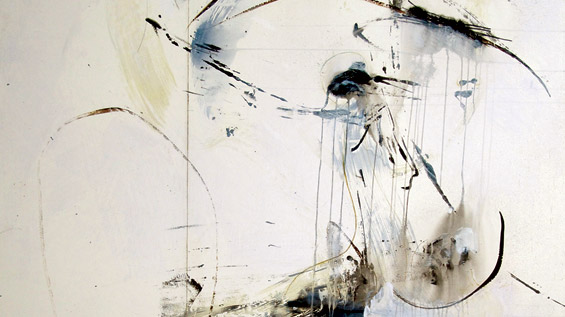-
December Feature 2012
-
Editor's Note
-
Feature
- Carolyn Kizer
A video tribute with pictures from Kizer’s own collection
of photos. - Ugly Postcards Donald Keene's collection of witty epistolary exchange with Carolyn Kizer.
- Carolyn Kizer
A video tribute with pictures from Kizer’s own collection
-
Memoirs
-
ESSAY
- David Rigsbee
Carolyn Kizer: Late and
Last Poems
- David Rigsbee
Carolyn Kizer: Late and
Feature > Editor's Note
Editor's Note
Dear Readers,In addition to our regular Winter Poets in Person Feature with Gregory Orr, due to release next month, The Cortland Review has put together a special event for December 2012: A Tribute to Carolyn Kizer. TCR thanks Guest Editor David Rigsbee for the concept and the content and Carolyn Kizer's daughter, artist Jill Bullitt, for her exquisite "Linking Light," the artwork on our cover (acrylic and pencil on paper mounted on canvas). "Linking Light" as well as more of Jill's work can be seen at sedersgallery.com.
From Guest Editor David Rigsbee:
In celebration of the life and work of Carolyn Kizer, who turned 89 this month (on December 10th, Emily Dickinson's birthday), we are posting two slideshows, one of pictures from Kizer's own collection of family and career photos; the other of "ugly postcards," part of Donald Keene's collection of witty epistolary exchange begun in the 1960s and persisting well into the millennium. The postcards are marked by the dubious taste of the images depicted on the front, against which the text usually makes droll reference. In addition, a number of her peers have contributed short memoirs: C. K. Williams, Judith Johnson, Edmund Keeley, Donald Keene, Daphne Athas, Betty Adcock, Arthur Hall Smith, Jackson Wheeler, and Willis Barnstone. We top off the feature with an essay that considers her last published poems and their connection to the distinguished body of her work.
Kizer has been called many things in her day: "goddess" all to often springs uncomfortably to mind, although not all have been so extravagant in their flattery. But one thing you could not say about her was that she was inconspicuous. As a prominent figure in the literary community she has not been shy to take up the cudgels, to fight the power, especially when that power resorts to intimidation to shrink the common human franchise. As an artist she has been likewise unafraid to offer the ethical as coeval with the aesthetic, but in forms as light-filled and classical as a quartet by Haydn, with its accompanying dialectic: upstairs form; downstairs content. Her wit is caustic--iconoclastic and terrifyingly funny; her feminist satire--Olympic reality checks--both formally subversive and morally edifying.
The list of her accomplishments is long: co-founder of Poetry Northwest, first literary directorship for the National Endowment for the Arts, the Robert Frost Medal, the Pulitzer Prize, Chancellorship of the Academy of American Poets, and on it goes, each laurel leaf greener than the last. Yet in the end we are made most aware of the force of character behind the music, and the realization dawns that here is a poet whose work sets about to register a particular identity upon the flow of recent history. When Keats averred that his "name was writ on water," he was not lamenting his disappearance. On the contrary, he was betting that even the flux would bear his imprint. We hope this feature suggests why it is possible to think so.
—David Rigsbee
The Cortland Review thanks David Rigsbee, Jill Bullitt, and all the contributors who have come together to honor Carolyn with this stunningly intriguing and exuberant personal tribute.
All of us at The Cortland Review wish you joy this holiday season. May there be peace and love in your lives and hearts until we see you again in January.
Happy Holidays,
Ginger Murchison
Editor
